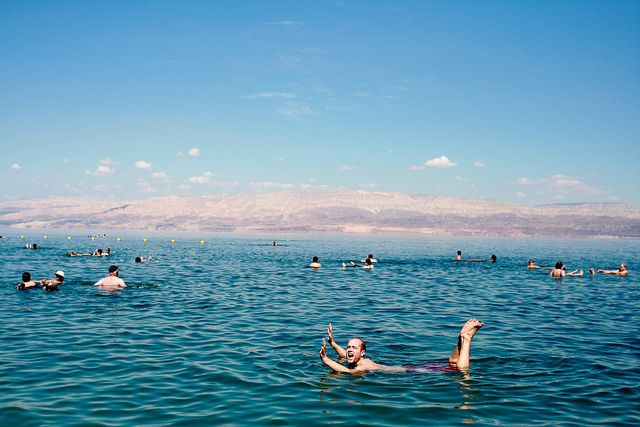Peeing In The Ocean? 2 In 3 Beachgoers Admit To Urinating In The Ocean Which, According To Scientists, Is Perfectly Fine

In case you were wondering, the polls have just come in and it turns out that, yes, the ocean is pretty much a giant toilet bowl. In a survey conducted by the toilet paper brand Charmin, two out of three beachgoers said they peed in the ocean, and that’s just counting in the ones who admitted it. Don’t worry, though; according to scientists the oceans is far too vast to be affected by a little human urine.
Everyone's Doing It
Of the 1,000 respondents in the survey, 62 percent admitted to peeing in the ocean, and 48 percent admitted to doing it more than once. Although the reason why people choose to urinate in the sea waters is not entirely clear, it may have something to do with the 54 percent of respondents who revealed they viewed beach bathrooms as being the worst public restrooms, The Huffington Post reported. The survey was done in hopes to raise awareness for the Charmin Relief Project, which aims to supply clean and fully stocked beachside restrooms with none other than Charmin’s toilet paper.
Beach toilets are gross. Most are built without a lid, which means that every time you flush, bacteria aerosolizes, carrying germs that could pass along symptoms such as diarrhea or vomiting, Prevention reported. Researchers at Leeds University in the United Kingdom found that with every uncovered flush of a toilet, bacteria are spewed upward of 10 inches in each direction. It’s no wonder that most people would rather heed nature’s calling in the soothing ocean waves.
It's Harmless?
Peeing in the ocean, on the other hand, seems to be perfectly fine. “Urine is harmless stuff in the first place and is diluted to the point of insignificance within minutes. There are far more harmful things in the ocean to worry about!” Stuart Jones, a biochemist in the department of clinical biochemistry at King George Hospital in London, explained, Jezebel reported. For example, the composition of both seawater and human urine is not drastically different. Both are mainly composed of water and salt. What makes urine differ from seawater is its high concentration of creatinine and urea. When urea breaks down, it becomes ammonium, a charged molecule that is converted into nutrients and used by ocean plants. Although there is a such thing as too much ammonia, Jones reassures that due to the ocean's vast size, even if, theoretically, every person in the world relieved themselves in the Atlantic Ocean at the same moment, there still wouldn’t be enough urea in the water to make a difference.
Just Ask The Whales
On top of the contents of the urine not disturbing the ocean’s ecosystem, humans have to realize that ocean mammals, as well as fish and other sea critters, urinate in the salty waters all the time. “I’m fairly certain whales and dolphins don’t have ocean outhouses that collect and process their waste, they’re also peeing in the ocean,” wrote Lauren Wolf from Central Science. Wolf goes on to explain that the large ocean mammals pee in far larger quantities than humans. For example, the fin whale, on average, urinates at a rate of 970 L/day, making it excrete 23 times higher amounts of sodium and chloride than humans do.
As For The Public Pool...
However, if peeing in the ocean makes you squeamish, you don’t even want to know what goes on in a public pool! A survey conducted by the Water Quality and Health Council found that one in five Americans had confessed to this, Blisstree reported. Carly Geehr, former USA swimming national team member, disclosed that, in her opinion, close to every elite competitive swimmer pees in the pool on a regular basis. Not even America’s beloved Michael Phelps is free from this habit, who, when questioned by the paparazzi on his pool toilet habits answered rather cooly, “Everyone pees in the pool.”
Published by Medicaldaily.com



























